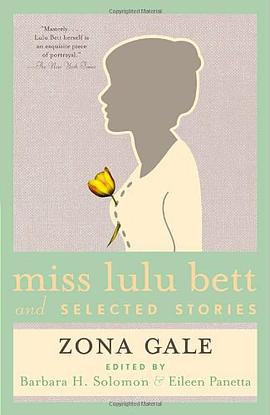

具体描述
No literary figure has proved so elusive as Shakespeare. How, Courtney Lehmann asks, can the controversies surrounding the Bard's authorship be resolved when his works precede the historical birth of that modern concept? And how is it that Shakespeare remains such a powerful presence today, years after poststructuralists hailed the "death of the author"? In her cogent book, Lehmann reexamines these issues through a new lens: film theory.An alternative to literary models that either minimize or exalt the writer's creative role, film theory, in Lehmann's view, perceives authorship as a site of constitutive conflict, generating in the process the notion of the auteur. From this perspective, she offers close readings of Romeo and Juliet, A Midsummer Night's Dream, and Hamlet, of film adaptations by Kenneth Branagh, Baz Luhrmann, and Michael Almereyda, and of John Madden's Shakespeare in Love. In their respective historical contexts, these plays and films emerge as allegories of authorship, exploiting such strategies as appropriation, adaptation, projection, and parody. Lehmann explores the significance of this struggle for agency, both in Shakespeare's time and in the present day, in the cultures of early and late capitalism.By projecting film theory from the postmodern to the early modern and back again, Lehmann demonstrates the ways in which Shakespeare emerges as a special effect -- indeed, as an auteur -- in two cultures wherein authors fear to tread.
作者简介
目录信息
读后感
评分
评分
评分
评分
用户评价
对于推理小说,我早已厌倦了那种纯粹依赖逻辑推演的“密室解谜”套路。真正吸引我的,是那些将犯罪行为置于复杂社会背景之下的作品,比如探讨阶级固化、性别压迫或系统性腐败如何催生出极端个体的故事。我希望作者能构建一个足够真实、呼吸感十足的虚构世界,在这个世界里,罪行不是突兀的孤立事件,而是环境、历史遗留问题和社会结构必然的、甚至是悲剧性的产物。我期望的,是那种读完后,你会感到一丝寒意,不是因为凶手有多么狡猾,而是因为你意识到,在某种特定的社会条件下,任何一个人都可能成为“加害者”或“受害者”。这种对社会病理学的深入挖掘,比单纯的“谁是凶手”要耐人寻味得多,它要求作者具备社会学家般的洞察力和小说家般的叙事张力,将悬疑的内核与深刻的社会批判紧密捆绑在一起。
评分读完最近一本关于拜占庭帝国衰亡史的著作,我深刻体会到,即便是最辉煌的文明,也逃不过时间侵蚀的铁律。那本书以惊人的细节描绘了君士坦丁堡的城墙如何一步步被围困,那些曾经不可一世的皇帝们如何在权力的漩涡中挣扎、背叛与最终的陨落。它让我思考,权力、信仰与文化,这三者是如何交织、支撑,最终又互相倾轧,导致一个千年帝国的瓦解。那种历史的沉重感是如此真实,以至于我合上书本后,仿佛还能听到城墙倒塌的巨响。我一直在寻找能与这种史诗感相媲美的作品,一部能够探讨“永恒”与“消亡”这一宏大主题,但着眼点却放在个体命运上的作品。我希望这本书能拥有如同历史学家般的严谨考据,但笔触却要像小说家那样充满感染力,能够描摹出在巨大历史洪流面前,小人物的无奈、勇气与绝望。那种将宏大叙事微缩至个人悲剧的叙事技巧,对我有着致命的吸引力。
评分我对那些探讨“记忆的不可靠性”和“历史重构”的哲学思辨类书籍情有独钟。在我看来,我们所认定的“真实”,往往只是当下权力结构下被筛选和编码过的叙事。比如,当我阅读关于二战后纽伦堡审判的文献时,我总会思考,那些被排除在外的声音,那些被刻意遗忘的细节,是否构成了另一种同样真实的“历史幽灵”?我期待能有一本书,它不是简单地陈述历史事件,而是深入挖掘那些“未被言说之物”,那些被档案深处遗忘的旁注、被官方宣传所掩盖的矛盾。我需要它能像一把手术刀,剖开既定的历史框架,展示出在那些被公认为“正确”的叙述之下,潜藏着的复杂人性与道德困境。这本书应该能激发我的批判性思维,让我不再满足于接收现成的结论,而是主动去质疑和探寻历史事件背后更深层次的动因和代价,最好还能带有一丝存在主义的冷峻和反思。
评分莎士比亚的戏剧对我来说一直是座难以企及的高山,那深邃的语言和复杂的历史背景常常让我望而却步,即便翻开《哈姆雷特》或《李尔王》,我通常也只能领略到皮毛,那些晦涩的典故和双关语像一道道无形的屏障,阻碍了我真正进入文本的灵魂。我一直渴望能有一把钥匙,能帮我轻松地开启这扇古典文学的宝库,让我不仅能理解字面意思,更能感受到那种跨越时空的震撼力。我期待着那种能将宏大的历史叙事与细腻入微的人性刻画完美结合的作品,不是那种枯燥的学术分析,而是充满生命力的解读,能让我仿佛身临其境地体会到伊丽莎白时代的氛围,感受到那些角色内心深处的挣扎与激情,而不是仅仅停留在舞台上的背诵。我需要的是一种引导,一种能让我重新爱上这位“吟游诗人”的契机,让我明白为什么他的作品能流传数百年而不朽,而不仅仅是将其视为文学史上的一个符号。我希望找到的,是一本能将冰冷的文字重新点燃,赋予其呼吸与温度的向导。
评分我最近迷上了一种非常小众的艺术形式——十九世纪末欧洲的“墓园雕塑”。那些维多利亚时代的哀悼雕塑,尤其是那些描绘垂死天使、沉睡的孩童和哀伤的女士的作品,有一种独特的、近乎病态的美感。它们不仅是艺术品,更是那个时代关于死亡、哀伤和永恒的社会契约的物质体现。我花费了大量时间去研究那些雕塑家如何运用大理石的冰冷质地去表现生命的消逝与不舍。因此,我渴望找到一本能够将这种对“物”的细致观察与对“情感”的深刻剖析结合起来的作品。我期待它能如同文物修复师般,小心翼翼地剥开历史的尘埃,去解读那些被遗忘的物质遗存——无论是建筑、服饰还是雕塑——是如何承载并反映了特定时代人们对生命终极问题的理解和表达方式。这需要极高的观察力和细腻的文笔,能够让读者透过冰冷的物质看到炙热的情感脉络。
评分 评分 评分 评分 评分相关图书
本站所有内容均为互联网搜索引擎提供的公开搜索信息,本站不存储任何数据与内容,任何内容与数据均与本站无关,如有需要请联系相关搜索引擎包括但不限于百度,google,bing,sogou 等
© 2026 book.wenda123.org All Rights Reserved. 图书目录大全 版权所有




















